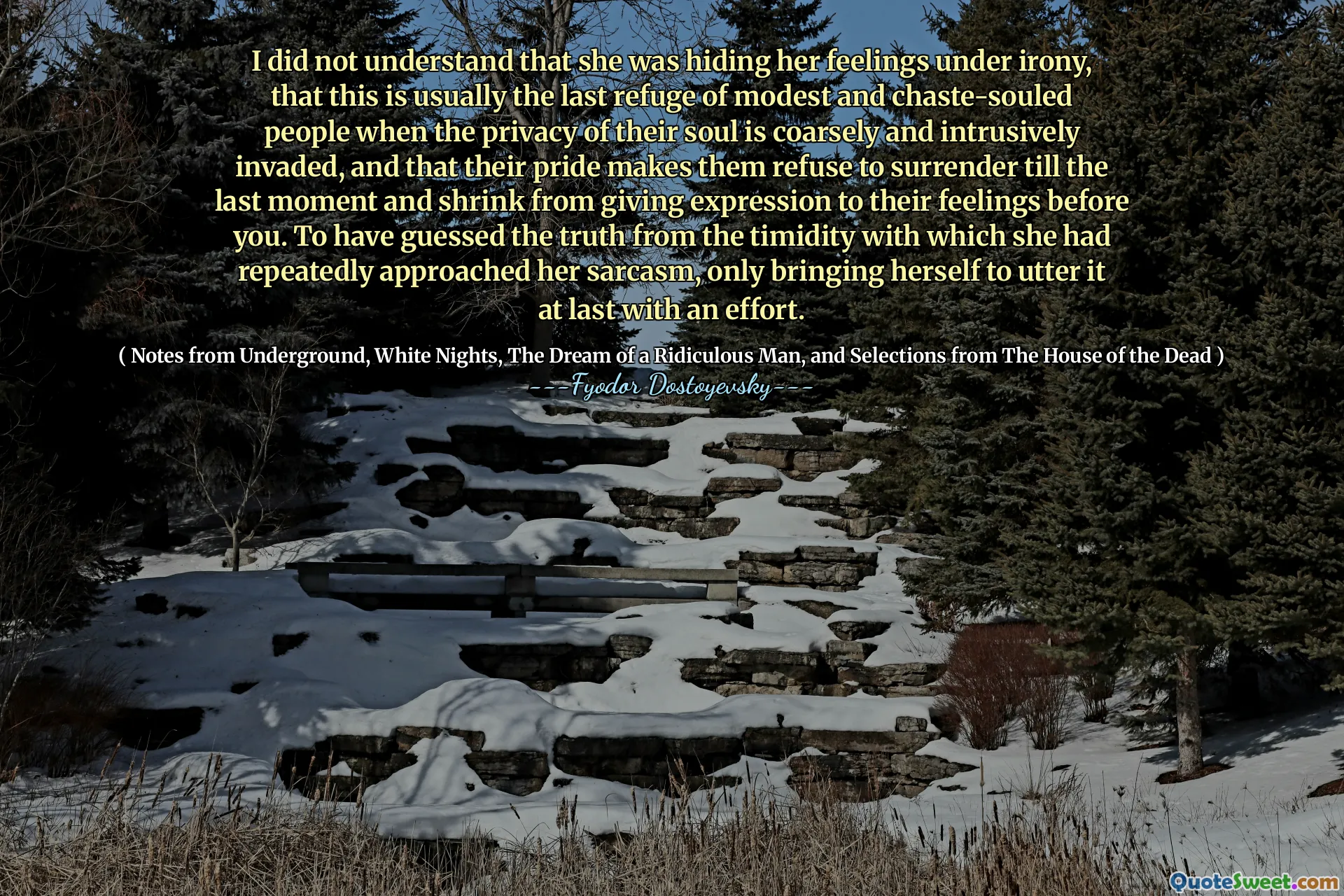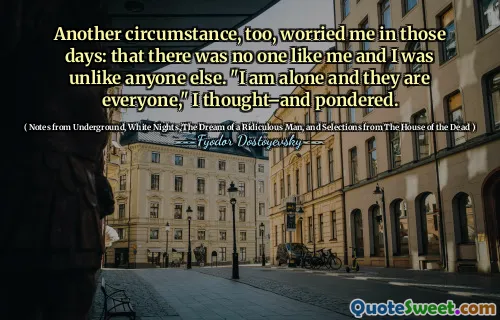
I did not understand that she was hiding her feelings under irony, that this is usually the last refuge of modest and chaste-souled people when the privacy of their soul is coarsely and intrusively invaded, and that their pride makes them refuse to surrender till the last moment and shrink from giving expression to their feelings before you. To have guessed the truth from the timidity with which she had repeatedly approached her sarcasm, only bringing herself to utter it at last with an effort.
This quote offers a profound insight into the often misunderstood nature of human emotional expression, particularly through the lens of modest and reserved individuals. The speaker reflects on how irony or sarcasm can serve as a protective shield, a last fortress that modest personalities erect to safeguard their innermost feelings from invasive scrutiny. Such individuals, by nature or circumstance, may find vulnerability daunting, especially when their inner world is exposed to intrusion or assault. Their pride and innate sense of self-respect compel them to withhold genuine expressions of emotion, adopting sarcasm as a form of defense rather than merely as humor or wit.
The detailed recognition of this behavioral pattern underscores a deep understanding of human psychology—particularly how emotional restraint manifests as sarcasm or irony. The observation that these expressions are often tinged with timidity and difficulty highlights the inner struggle between the desire for authentic communication and the fear of exposure and judgment. The final revelation—that the sarcasm was, in fact, a mask for suppressed feelings—resonates as a powerful reminder that beneath superficial mores, there lies a complex landscape of vulnerability and pride.
In essence, the quote beautifully encapsulates the silent battle many people wage: balancing the need for emotional honesty with the fears of vulnerability. It prompts us to consider patience and empathy towards those who communicate in indirect, humorous, or shielding ways, recognizing that their reticence often stems from a defense mechanism fueled by dignity and privacy concerns. Such insight nudges us toward deeper compassion, understanding that often the bravest acts are silent and cautious, hiding profound emotions behind layers of irony.
---Fyodor Dostoyevsky---







